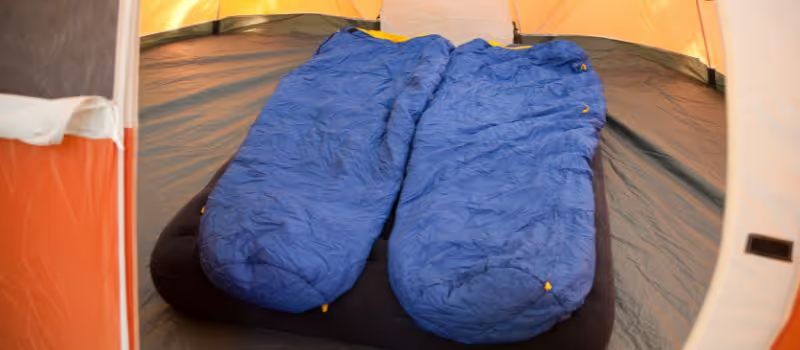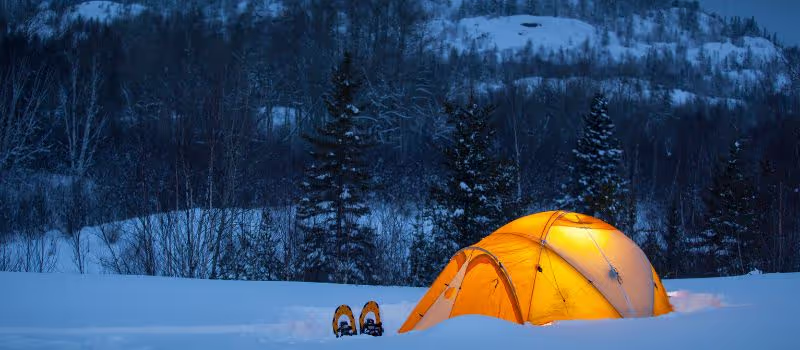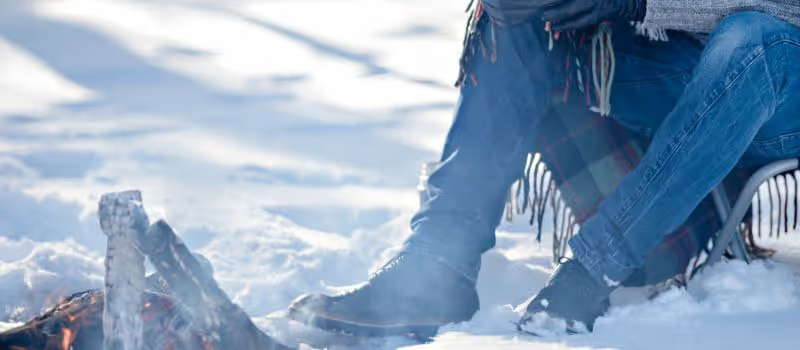Winter camping is a great way to escape and reconnect with nature. There's no better feeling than waking up in the morning to find yourself shivering under your heavy sleeping bag, surrounded by snow-covered mountains or pristine lakes.
It's also a fun challenge: if you're used to summertime camping trips, tackling winter camping will give you an entirely new set of experiences and skills and maybe even some bragging right.
But before you go out into the cold, there are a few things you should know. We've put together this list of tips to help make sure your next winter camping trip is as safe and enjoyable as possible!
Check Weather Conditions and Hazards
Before heading out, make sure you know what the weather is going to be like. There's nothing worse than being cold and wet when you were expecting sunshine and blue skies—so check the forecast beforehand and pack accordingly especially during winter when the weather can change quickly. You should also be aware of any hazards that may affect your trip: rivers, cliffs, lakes, and other bodies of water can freeze over in the winter months and become treacherous to cross; snowfall can create dangerous conditions on hiking trails.
Layer Up
It will be important to pack plenty of warm clothing, as even if you're only camping in winter weather for a day or two, it can still get pretty chilly at night. Wool is a good choice for your base layers since it tends to retain heat better than polyester and cotton do. Fleece is another popular material that's ideal for layering; the extra warmth comes from its ability to trap body heat close to the skin and wick away moisture from your body.
Bring Extra Blankets
There's no telling what the weather will be like when you're camping in winter, so it's a good idea to bring along some extra blankets. A heavy sleeping bag can only do so much if you get too cold at night! Make sure that any blankets or sleeping bags are rated for colder temperatures than what's expected where you're going; this will ensure that they'll keep you warm enough even without heaters or stoves.
Bring Waterproof Shoes and Socks
If you're camping in winter, it's a good idea to bring along some waterproof shoes and socks. This will keep your feet dry if it rains or snows while you're out camping, which can help prevent cold-related health issues like frostbite.
One Pass That Does It All. Get Out And Play!
Bring a Sleeping Bag Rated for Cold Weather

A sleeping bag rated for cold weather is a must for camping in winter. If your sleeping bag isn't rated for colder temperatures, it won't keep you warm enough at night and can even contribute to hypothermia. There are many different types of sleeping bags available, from those designed specifically for camping to backpacking models that are lighter and more portable but less warm. Pick one that's right for both how long you'll be spending outdoors each day as well as how cold it gets where you're going!
Use a Steep Sided Tent
A steep-sided tent is best for winter camping. Tents with a low profile are more susceptible to being blown away by strong winds, which can happen quite frequently in the colder months. This is because the air pressure is lower during winter, which makes it easier for the wind to move things around. A steep-sided tent can also help keep you warmer by reducing drafts that come in through the top of your tent.
Insulate Your Tent

One of the most important things you can do to stay warm when camping in the winter is to insulate your tent. You can either add an additional layer of insulation or use a reflective barrier material on the outside of your tent to reflect back some of that heat from the sun. Insulation will help prevent heat from escaping through the walls of your tent, which will make it easier for you to stay warm at night.
Use a Sleeping Pad
You'll want a sleeping pad to keep yourself off the ground and insulated from its cold temperature. The most common type of sleeping pad available today is an inflatable one; these are usually made out of foam or some form of plastic with an air chamber inside them. Some people swear by self-inflating mats while others prefer ones that require manual inflation as they feel they provide more comfort.
Eat Lots of Fat and Protein
Fat is a great way to keep your body warm during cold weather camping, as it provides the calories you need without losing much in terms of weight or space. Protein also helps keep you warm, as well as providing extra energy for hiking and other activities.
Get a Fire Going

A fire is one of the best ways to keep yourself warm when camping in cold weather. It can also help you cook food and provide light, which are all important things to have while camping in the wilderness. It’s a good idea to have some fire starters on hand, such as dryer lint or even old newspapers. You can also purchase small packets of fire starters at most camping stores.
Pack a First Aid Kit
You should always pack a first aid kit when camping, no matter how short or long your trip is. A basic first aid kit should include bandages, gauze pads, and tape. You can also add antiseptic wipes and antibiotic ointment to help prevent infection. Pack extra medicine if you are prone to allergies or have certain conditions that could flare up while camping in the wilderness.
Conclusion
While it's true that winter camping can be freezing and uncomfortable, it can also be fun! With a little preparation and creativity, you'll find your campsite becomes more of an adventure than just a place to rest your head.
It is also a great way to get away from it all and spend some time in the woods with friends and family. With these tips, you'll be well on your way to having an enjoyable experience even if the weather turns out to be colder than expected!
.jpg)
.jpg)
.jpg)